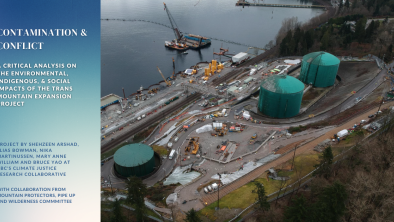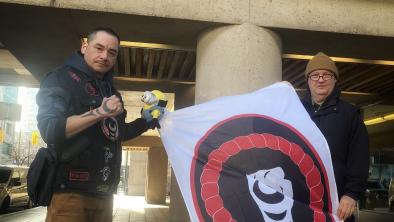Cancun Climate Agreement Raises Temperature on Harper

Expectations have been low that any form of agreement would be reached at the UN climate negotiations in Cancun, but in a surprise turn of events a "package" of climate policies has been agreed upon by most countries.
The package was negotiated late at night Thursday and presented to delegates on the last day, Friday.
Canada was awarded the "Fossil of the year" award by a coalition of international environmental groups recognizing the Canadian delegation as the worst participant in the convention. This is Canada's fourth consecutive "fossil of the year" award. "Pressure is increasingly on the Harper government for Canada to play a responsible role in the world," said Ben West Healthy Communities Campaigner for the Wilderness Committee. "For Canada to switch from increasing to decreasing our emissions we would need to switch the tar sands from growing to shrinking -- it's just that simple," said West.
The Cancun package agreed upon focuses mostly on raising funds for various climate related programs such as a proposed "Green Climate Fund" which is intended to raise and disburse $100bn a year by 2020 to protect poor nations against climate impacts and assist them with low-carbon development. The agreement does not include any new binding emissions reduction targets due to the obstruction of Canada and other countries.
Delegates from major climate changing pollution emitters like China, the United States and the EU are agreeing that this draft plan could be the basis of a new agreement to be signed at the next UN Conference, COP17 in South Africa in 2011. The proposal presented in Cancun may lead to the abandonment of the existing Kyoto Protocol, replacing it with a new treaty.
Not all countries were pleased with the results in Cancun. Bolivia's chief negotiator, Pablo Solon, told delegates the proposal would be the equivalent of "ecocide" because it fails to set any further emission reduction targets and therefore would not keep CO2 within safe levels.
"Ultimately at the end of the day we need climate policy based on climate science. This means a phase out of fossil fuel dependence in our lifetimes. We need to start now -- deal or no deal at the UN," said West.
The Wilderness Committee is calling on people not to wait for world leaders to reach a binding agreement but instead to refocus their efforts locally on the sources of climate change, like banning oil tankers off the coast of BC and stopping the proposed Raven Coal mine in the Comox valley on Vancouver Island.
"The whole point of these UN negotiations is reducing emissions, so we think the best way is just to cut out the middle man and get to work stopping the oil and coal projects that are the cause of climate change," said West. "I am not holding my breath waiting for Harper to do the right thing on this issue, but that doesn't mean we can't do it ourselves. Canadians want to be good global citizens and be part of the solution, not part of the problem," said West.


